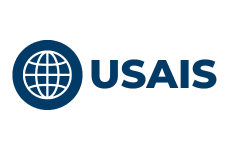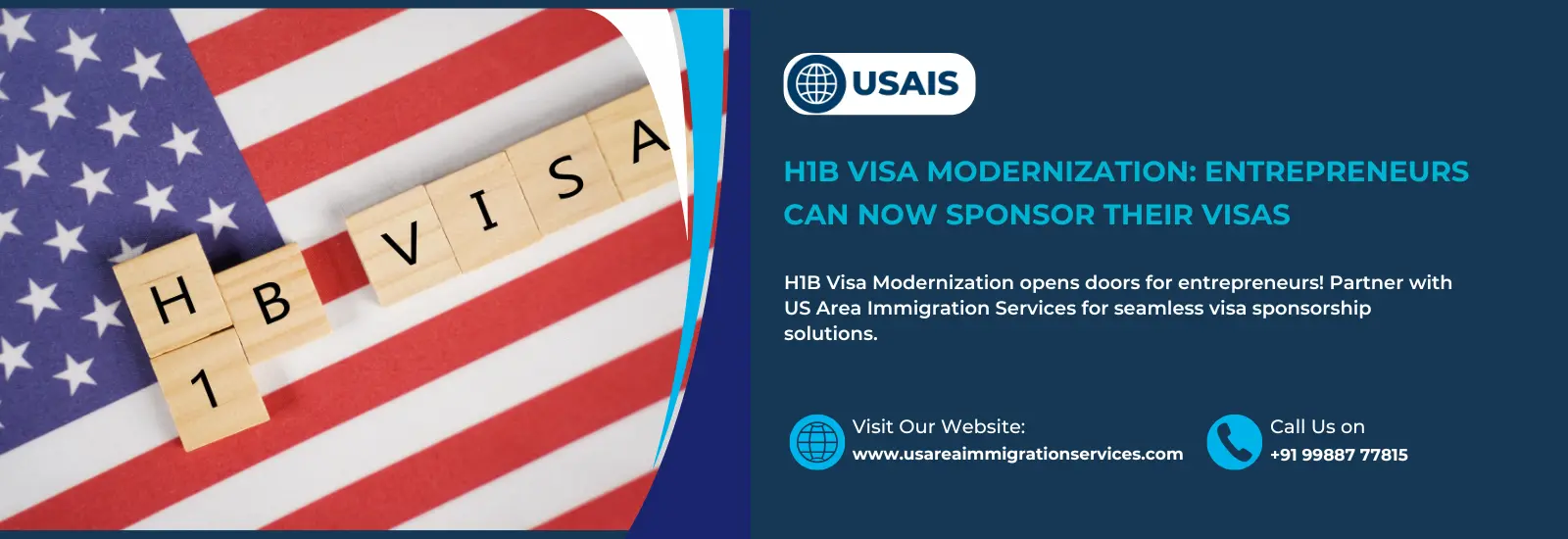The H1B visa has traditionally been the primary program for obtaining immigration for skilled workers in the United States. Now it also permits foreigners to work in specified sectors like technology, engineering, medicine, and many others. However, the H1B modernization rule has introduced a game-changing provision: recently, there are new rules where people who wish to be sponsored for visas can sponsor themselves through companies. This revolutionary concept paves the way for new advances and allows startups to thrive while drawing the attention of talent worldwide.
This is actually changing the process, and this article will talk about how this is happening, how it affects the H1B visa process, and what tips entrepreneurs need to know.
What Is an H1B Visa?
The H1B visa is an employment visa that allows American employers to hire workers in fields like math, finance, science, computer programming, and other luxury professions. It remains an important avenue through which crafted personnel from various countries make their skills available to the American economy. Originally, the H1B visa meant that an individual had to be sponsored by an employer in this country, and, typically, such sponsorships would only create opportunities for the sponsored individuals to work for their employers and not start their businesses in the United States.
However, the H1B program’s modernization rule has transformed this process. To this effect, the entrepreneurs are now able to perform the function of sponsors on their own by using their start-up entities to submit the H1B petitions. The shifting in rules results in equal opportunities for innovative persons from other countries to get work permits without relying on sponsors under particular conditions, including recognition of their role as the speciality occupation and financial stability of their business.
The H1B Modernization Rule: What Has Changed?
The H1B modernization rule has made new changes to the conventional H1B visa system, which now favours immigrants more than before. These changes relate to fundamental problems that startup founders have faced while attempting to obtain an H1B visa because of stringent sponsorship standards.
Key Changes Under the H1B Modernization Rule
1. Ownership Flexibility
Earlier, having a majority or controlling interest in a company meant that an individual could not use that business to sponsor an H1B visa. The modernisation rule erases this limitation, and since founders can own their start-ups and apply for visas through their firms.
2. Self-Sponsorship Now Allowed
The most significant shift was when the self-sponsorship of the H1B visas was offered to the entrepreneurs. This change means that founders may incorporate and use their own business to sponsor themselves, but it must be possible to show that the founder’s role meets the definition of a speciality occupation and meets all the regulatory prerequisites.
3. Simplified Documentation Requirements
The new rule eliminates paperwork, and the result is a lower level of difficulty for startups to show that they meet the H1B sponsor requirements.
4. Streamlined Employer-Employee Relationship
The rule also makes it clear on some of the conditions for the employer-employee relationship test. To illustrate, a social entrepreneur will need to demonstrate that he or she is an owner of the enterprise and at the same time has employees, for which a board or another person is often appointed to regulate employment relations.
Benefits of Self-Sponsorship for Entrepreneurs
That option to self-sponsor under the H1B modernization rule is an innovation for the entrenchment of the culture in which entrepreneurs can create and develop their businesses in the United States. This rule elimination that enabled startup founders to act as their sponsors erased some of the long-standing restrictions on foreign innovators. Here are the key benefits of self-sponsorship for entrepreneurs:
1. Simplified Immigration Pathway
The H1B visa process is further simplified and made more conducive to the demands of startup founders, the entrepreneurs. One of the most significant hurdles of sponsorship that is faced in corporate employment can therefore be evaded when founders use their own company to sponsor their visas.
2. Encourages Innovation and Creativity
There are fewer constraints in place so that businesspeople may concentrate on creating their perfect vision. The rule creates conditions that support freedom and creativity because a talented person can create a business, which, due to visa rules, he or she could not do before.
3. Supports Job Creation and Economic Growth
H-1B entrepreneurs’ startups provide job opportunities that put the economy into consideration and generate revenue. As a result, the rule allows foreign founders to sponsor themselves and carry on expanding their businesses in the U.S.
4. Enhances Global Competitiveness
To retain the status of affordable and attractive scientific, technological, and innovative centre No. 1, it is crucial to attract the best global talent. Self-sponsorship under the H-1B modernization rule makes the U.S. an attractive market for entrepreneurial skills.
5. Independence from Third-Party Sponsors
Self-sponsorship helps entrepreneurs avoid the trap of being obliged to work for other employers or sponsors. This independence assures them of full control of their careers and business activities, allowing them to single-mindedly develop startups without the restraint of contractual employment relations.
How Entrepreneurs Can Sponsor Their Own Visas?
The H1B modernization rule has brought significant change to the approach of self-sponsoring and left the third-party employer out of the process. This rule enables founders to use their own businesses for sponsorship, and it is an attractive chance for innovators to introduce and develop startups in the United States. Here’s a comprehensive guide on how to sponsor oneself on an H1B visa, including tips and tricks that will be of great help to the business-minded inventors.
1. Establish Your Startup
- Register your company in the U.S.
- Ensure that your business plan aligns with a specialty occupation.
2. File for an Employer Identification Number (EIN)
- Obtain an EIN from the IRS to establish your company’s legal identity.
3. Prepare Documentation
- Demonstrate that your role in the company qualifies as a specialty occupation.
- Provide evidence of your qualifications, such as degrees and certifications.
4. Submit Labor Condition Application (LCA)
- File an LCA with the U.S. Department of Labor to ensure compliance with wage requirements.
5. Apply for the H-1B Visa
- Submit your H-1B petition to the United States Citizenship and Immigration Services (USCIS).
Conclusion
The H1B modernization rule has brought significant change to the approach of self-sponsoring and left the third-party employer out of the process. This rule enables founders to use their businesses for sponsorship, and it is an attractive chance for innovators to introduce and develop startups in the United States. Here’s a comprehensive guide on how to sponsor oneself on an H1B visa, including tips and tricks that will be of great help to business-minded inventors.
FAQs
Ques1. Who is eligible to sponsor H-1B?
Ans – Any employer in the United States can sponsor the H-1B visa. The rule of thumb is that any employer that has an IRS Tax ID number must be eligible to register to file a petition for you.
Ques2. What are the requirements for sponsorship in the USA?
Ans – Valid job offer, employer’s EIN, speciality role, prevailing wage, and filed Labor Condition Application.
Ques3. What is the rule for a US H1B visa?
Ans – The change in the H-1B rules announced in early January this year now makes it reasonably possible for businessmen and women to practice their business in the United States while employed under their companies, minus the heady financial investment demanded by the EB-5 scheme. This also makes it easier for Indian professionals seeking to expand their business in the US to do so with ease.

